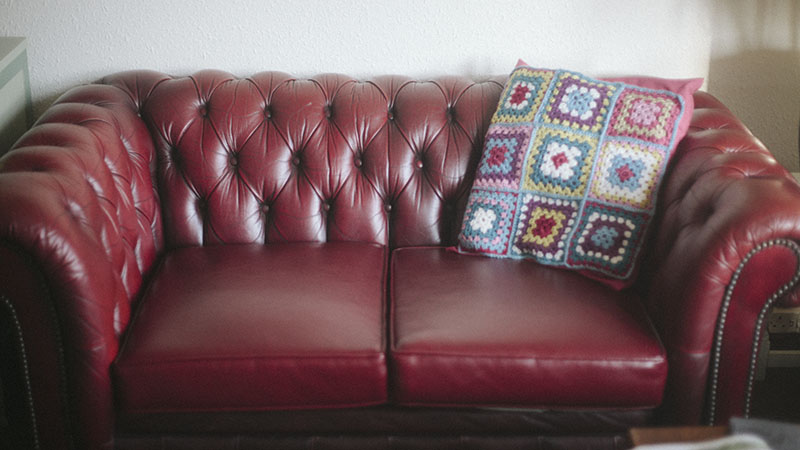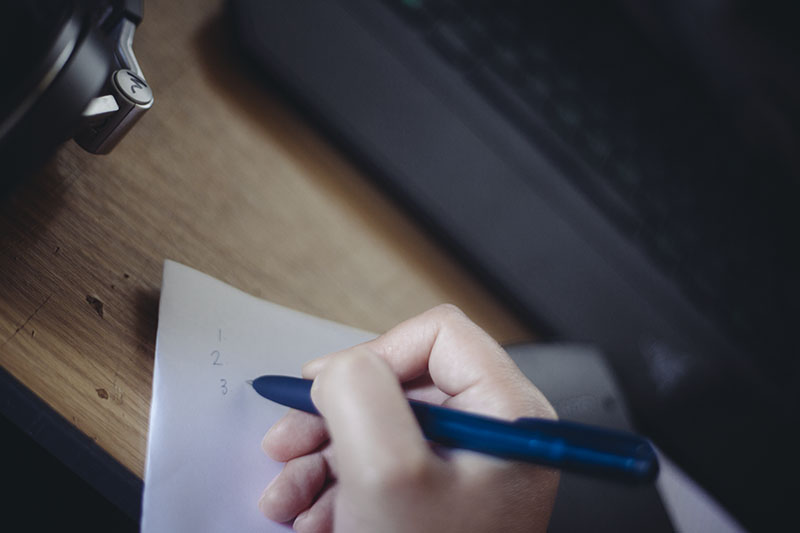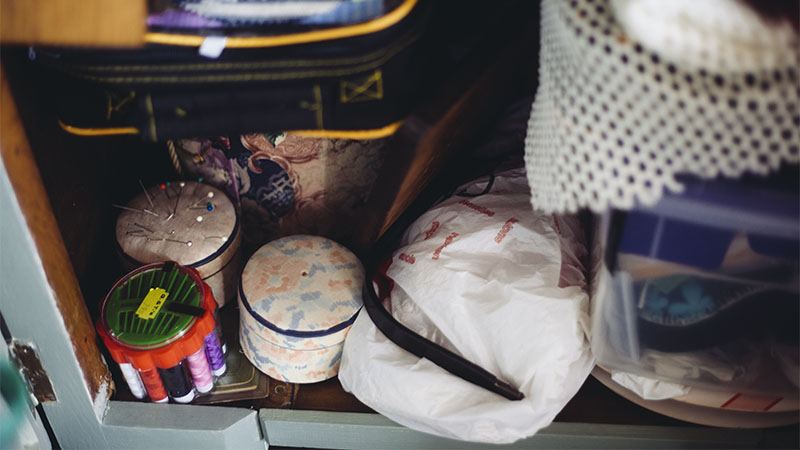While we all know just how important it is to be active and actually get around to doing all the physically laborious preps we have in our head to do, not every moment of the time you spend in front of the computer or sitting on a couch has to be time wasted.
If you’re a bit of a couch potato, I feel you, and I’m here to preach to the proverbial choir so to speak. You can be productive from a couch – you don’t always need to drag yourself out the door to practice survival skills, head to a gym to work out, or toil away doing gardening or housework in order to be productive at prepping. So for those of you who are couch potatoes like me – or just want to relax for the weekend without blowing off all productivity – here are a few things you can do to prep that don’t require you to get off your comfy couch;

Ways to Prep Without Even Needing to Get Off Your Couch
1. Researching information on preparedness & related topics.
This is a big one, and quite honestly should and will absorb more of your time than any of the other items on this list.
There are so many different skills and topics that would make you a better prepper for having learned that it’s impossible to say your research will ever come to an end, even if this is all you ever devote your time to when you’re on the net.
Whether you’re looking into instructional posts or reading books on optimizing your garden, buffing up your home security, figuring out the best recipes to make with long-term storage foods, learning which foods in your area are good for foraging, teaching yourself how to sew and mend clothing – the list is honestly endless, and you can really never stop learning when you’re pushing yourself to be a better prepper & survivalist.
2. Writing a prepper to-do list.
Those preps you always wished you could do, but never got around to because you just forgot? Write them down – make a list.
Even if you can’t get around to doing the vast majority of the items on your prepper to-do list, writing the list out will help you regardless, as it will give you a feel for where you’re headed in terms of your ultimate preparedness plan, and will help you to figure out if there are any holes you need to work on, especially with regard to small things you might have missed planning out here and there.
Writing out a to-do list will also help you to identify simple, easy-to-do preps that you can tackle right away that will leave you just that much closer to your ultimate goal of being very prepared.
3. Organizing your prepper to-do list.
Even once you’ve gotten your thoughts together into a prepper to-do list, this doesn’t make your life that much easier until you’ve managed to rearrange that list into something cohesive. To-do lists for preppers can be extremely daunting considering just how long they are, and how many items on that list are very different from one another – some items on that list being things you can knock out in an evening while others being things that will take you years or even decades to complete.
Sorting through your prepper to-do list and reorganizing it in a cohesive and helpful way can be a particularly overwhelming task to carry out, so if you’re having trouble with the re-ordering process, follow the instructions I laid out in this article here; it should really help you to get your list in an order that’s optimal for planning out the steps you’ll take next.
4. Planning out specific preps step-by-step.
This is getting down to the nitty-gritty details of prepper projects, but ultimately, the more you have planned out with regard to a specific prep, the more likely you’re going to carry out that prep because you’ve essentially taken out all the guesswork and confusion you could have about it in one shot.
Really wanted to put together a bunker, but aren’t quite sure how you’d do it? Taking an evening to sit down and plan things out (yes, with the help of Google or even Pinterest – so many really useful sites for all things DIY these days) and chances are you’re going to have an excellent plan of action laid out for yourself by the end of the day. Why will this help? Even if you don’t start on that bunker tomorrow – even if you start it 6 months, or even a year from now, you never need to go back and remember what you intended to do. It’s all there laid out for you.
And if you ever start on a project, but have to take a break because you’re too busy or need some time to build up savings to invest in your project again, all you have to do to continue with your project is to refer back to the plan you put to paper, then just continue along where you left off last. No need to think, “Oh shoot, I forgot where I was/what I was doing,” if everything has been written down. Just follow along the list of steps you drew up originally and you’re set to continue.

5. Documenting what gear, food, and supplies you’ve already got on hand.
Maybe not the easiest thing to do from the couch, strictly speaking, as you may need to get up and check a few things to write up this list, but if you’ve got the time and don’t want to spend the evening doing something too strenuous, writing up a list of what you have on hand at home with regards to your prepping will really help. It’l prevent you from buying items you’ve already got lying around, and keep you from forgetting about items you’ve recently purchased in the future.
As a tip for when you’re doing this: when you’re documenting supplies, write them down into that make the most sense and are the most helpful to you. If that means grouping all the first aid stuff you have together, do it. If it makes more sense to you to group together the supplies you have at home, then write up a separate list for the items in your bug out bag, your bug out location, etc., then do it that way. Your supply lists should make it as easy as they possibly can for you to be able to quickly look up whether you’re short or in need of a specific thing, and so if this means putting everything together or separating it out into many lists, do it in a way that makes things easier for yourself.
6. Writing up a checklists of items you still need to buy.
Once you’ve got that list of things you’ve already got, you’re likely to start noticing holes in supplies and foods you’ve got stored. Easy to fix – start up a checklist of all the goods and gear you still need to buy and keep that list someplace you won’t forget it. Then when you’ve got to add another item into your Amazon cart in order for you to get free shipping, or you’ve got to make a run to Costco where it’ll be really cheap to grab a specific thing in bulk, or even when you’re looking for sales in flyers, you’ll already know what you’re missing and so can tailor your search toward these items.
Which brings me to my next point…
7. Couponing and checking flyers for sales.
You don’t have to be an extreme couponer to make a load of savings from couponing and buying things on sale. But being a prepper, you definitely already knew this.
An obvious one, but couponing is definitely something you don’t need to leave the couch or computer chair to do.
8. Comparison shopping online to find the best deals for the items on your to-buy list.
My favourite way to save money is to be sure that what I’m buying in terms of gear and supplies are at some of the best prices around that I can find. Whether it’s a new backpack purchase or finding the best bang-for-buck folding knife, there’s plenty of resources online that can help you make the most of your money. Realistically speaking, Amazon by itself is an amazing tool for comparison shopping, considering it gives you a quick look at how popular an item is on top of the fact that the reviews on there usually give a very accurate depiction of how other customers felt about a product. It’s always beneficial to comparison shop when you’re looking to save money, as to save the most, you’ll want to maximize the quality you can get for your dollar.
9. Tallying up bills and budgeting for upcoming months.
There’s no limit to the amount that some extra money can help you with your preps if you’re careful with it. Figuring out how much you’ve spent and where, then budgeting for upcoming months to make sure you keep your hard-earned dollars is incredibly valuable, both for helping you to attain a higher emergency cash stockpile, as well as helping you fund physical stockpiles of food, gear, supplies, or even trade-able goods like gold and silver if that’s the kind of thing you’d like to have. Save enough and you will likely even have enough to buy a bug out location or even a bunker. Yes, it may take years to get to this level of fiances, but Rome wasn’t built in a day, and the sooner you start working on saving, the better off you’ll be.

10. Selling items you aren’t using on Ebay, Craigslist, or Kijiji to make some extra cash.
While it’s time consuming to do, if there are valuable items you have lying around, it can really be worthwhile to snap a picture and spend some time listing those items online to see if anyone wants to take those items off your hands for a price. Again, the extra cash you get from doing this could really help you with your preps. In the long run, the money could add up to be quite substantial, which would really help your prepping go a long way.
11. Searching through Craigslist or Kijiji’s “Free” sections.
It’s possible to find useful things on Craigslist or Kijiji, and while getting them for yourself requires you to get off your couch, searching through them certainly doesn’t. I used to check Kijiji’s free ads regularly a few years back when I first moved into my new house. Though there were quite a lot of items that popped up that were completely useless to me, there were also quite a few great finds – whether they were great to keep for myself and help in terms of my stockpile or supplies, or whether they were valuable enough items to then go and sell to make a profit off of.
Getting items for your stockpile for free or next to nothing can really help you to propel your stockpile further than your bank account statement might suggest it would allow.
12. Patching up holes in old clothing.
There’s nothing more useful to your bank account than not having to make a new purchase, and if you patch up the old, you’ll have no reason to go out and buy something new. Giving your clothes a second life through fixing them up is a really practical way of helping yourself out with other preps by keeping the money that you would’ve spent on new clothes stashed away for an emergency or redirecting that money toward a prep. Besides, it also helps you to prepare for TEOTWAWKI situations where you won’t be able to buy new clothing, and thus where being able to fix your old clothes will become a really valuable skill to have.
13. Knitting items you need or could use more of.
In line with the last point, knitting clothing like sweaters, scarves, hats, mitts, blankets, etc. will really help you to keep the extra savings for other preps you’ve got. Being able to knit clothing together in a TEOTWAWKI situation when you haven’t got the luxury of going out to buy clothes is also a really nice skill to have, one that will undoubtedly come in handy for yourself, your family, and even for trading purposes if TEOTWAWKI does rear it’s ugly head.

What other productive prepping can you do from your couch?
I’m sure I’ve missed listing a great number of prepper activities that are completely possible to do from your couch or computer chair. What have I left out? Leave a comment below with your suggestion!
Wrap up your monthly finances. Part of our preps.
Great prep!